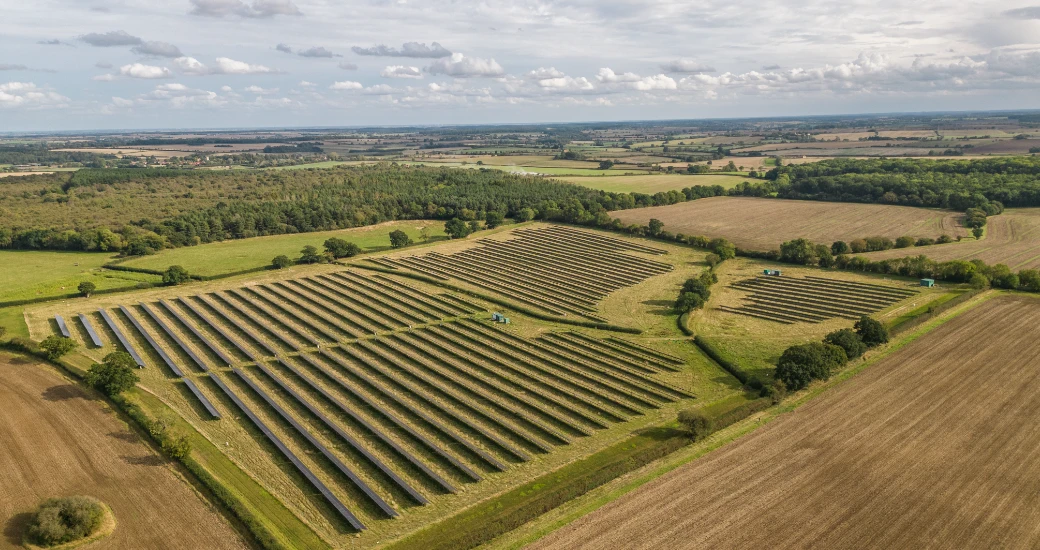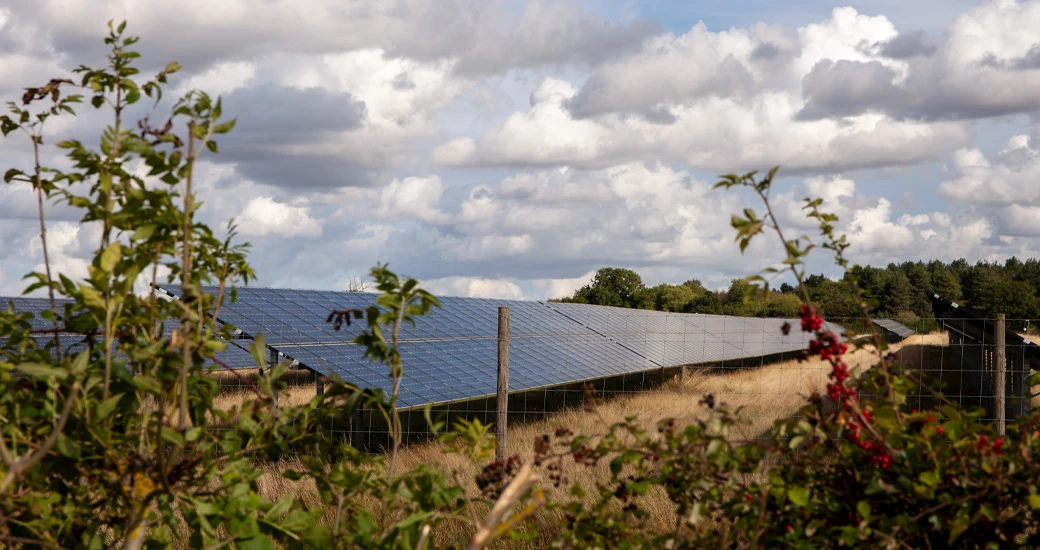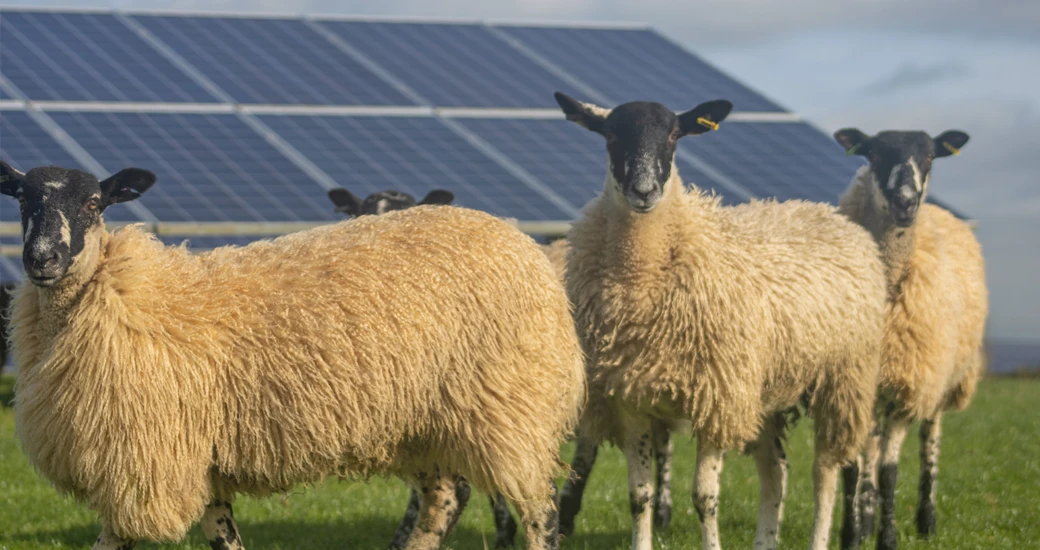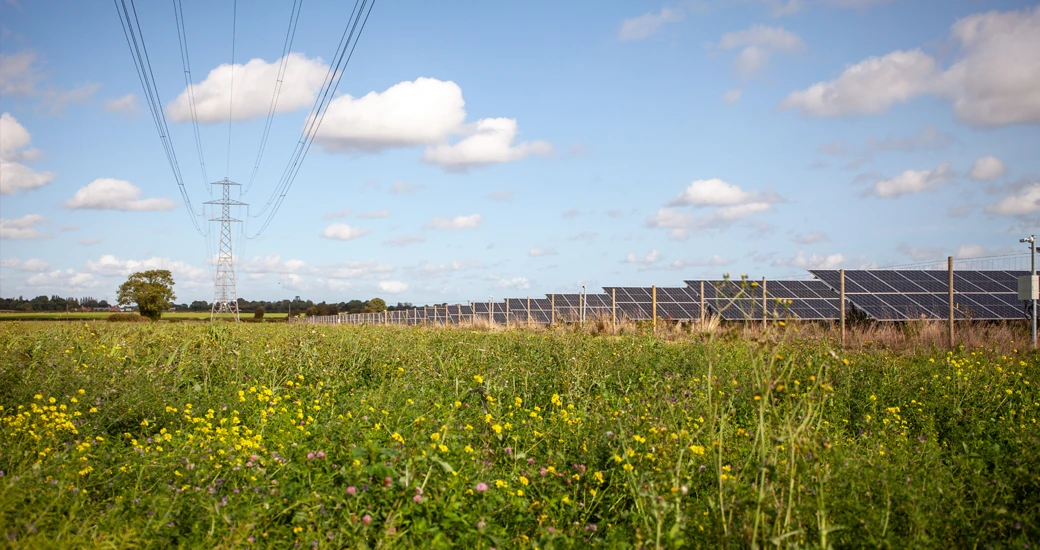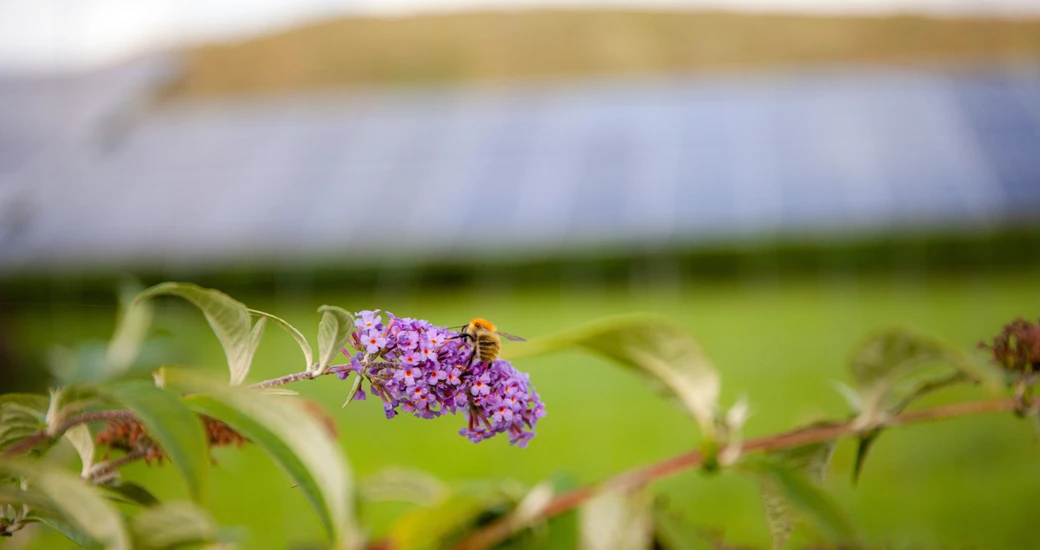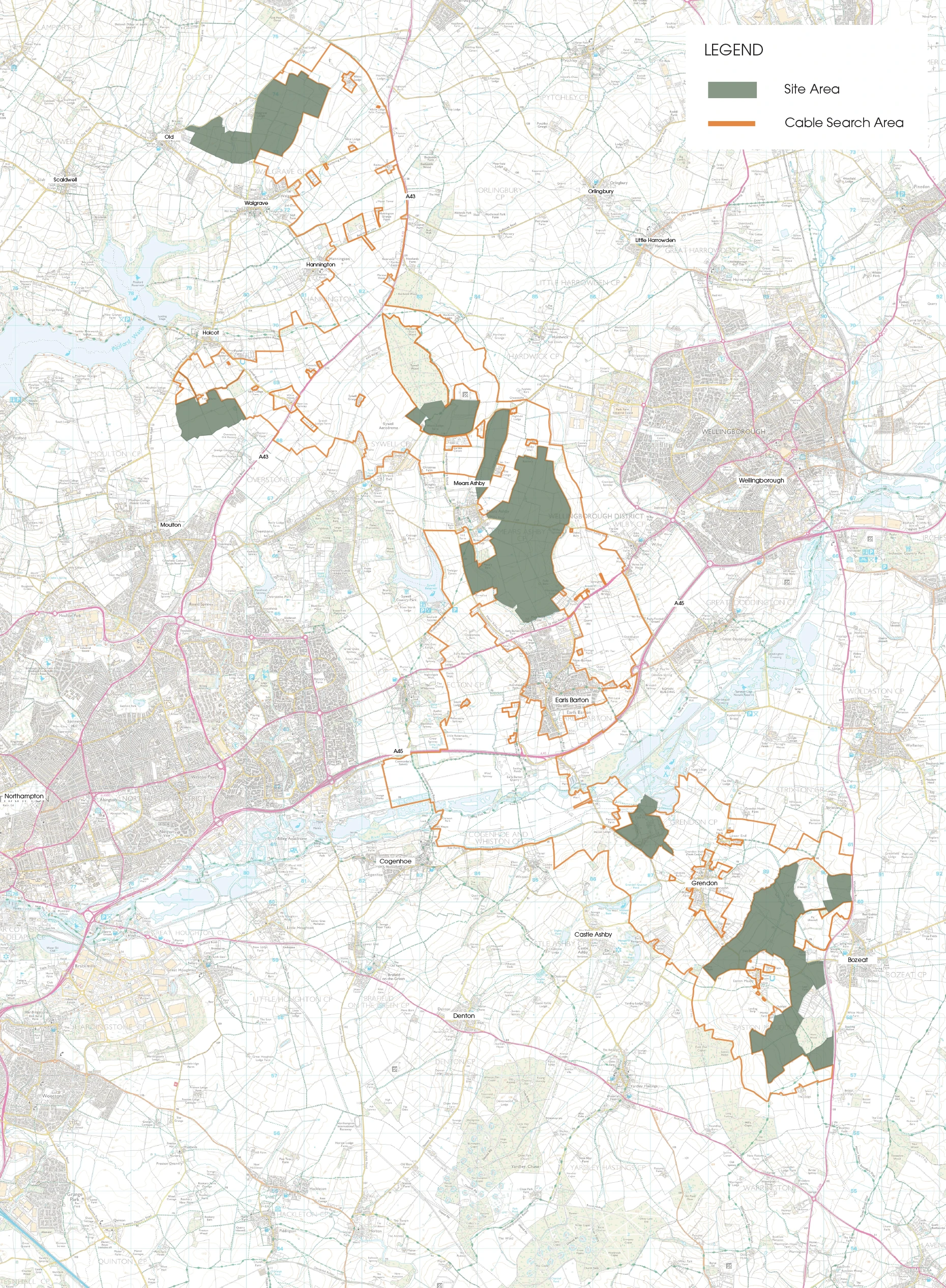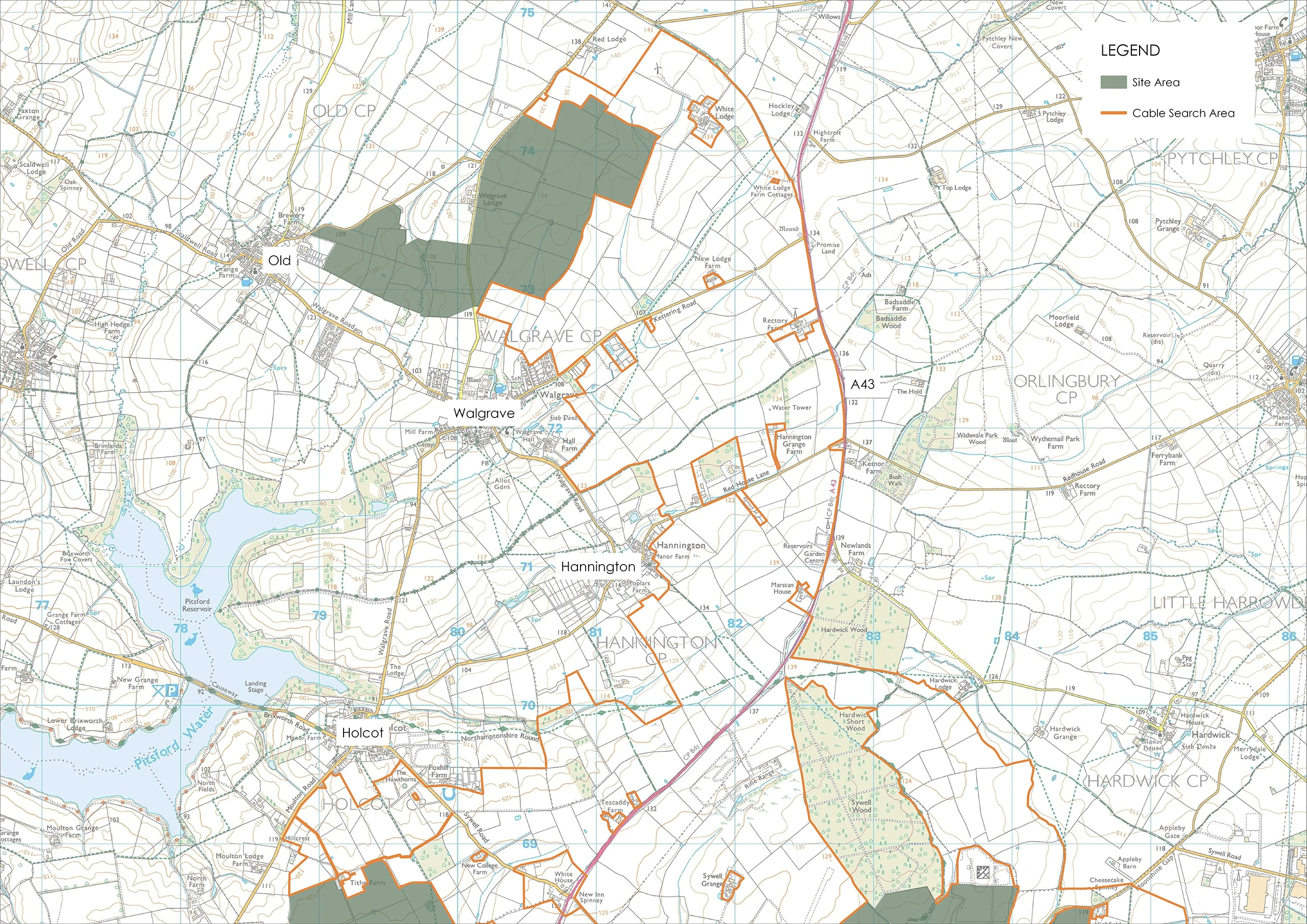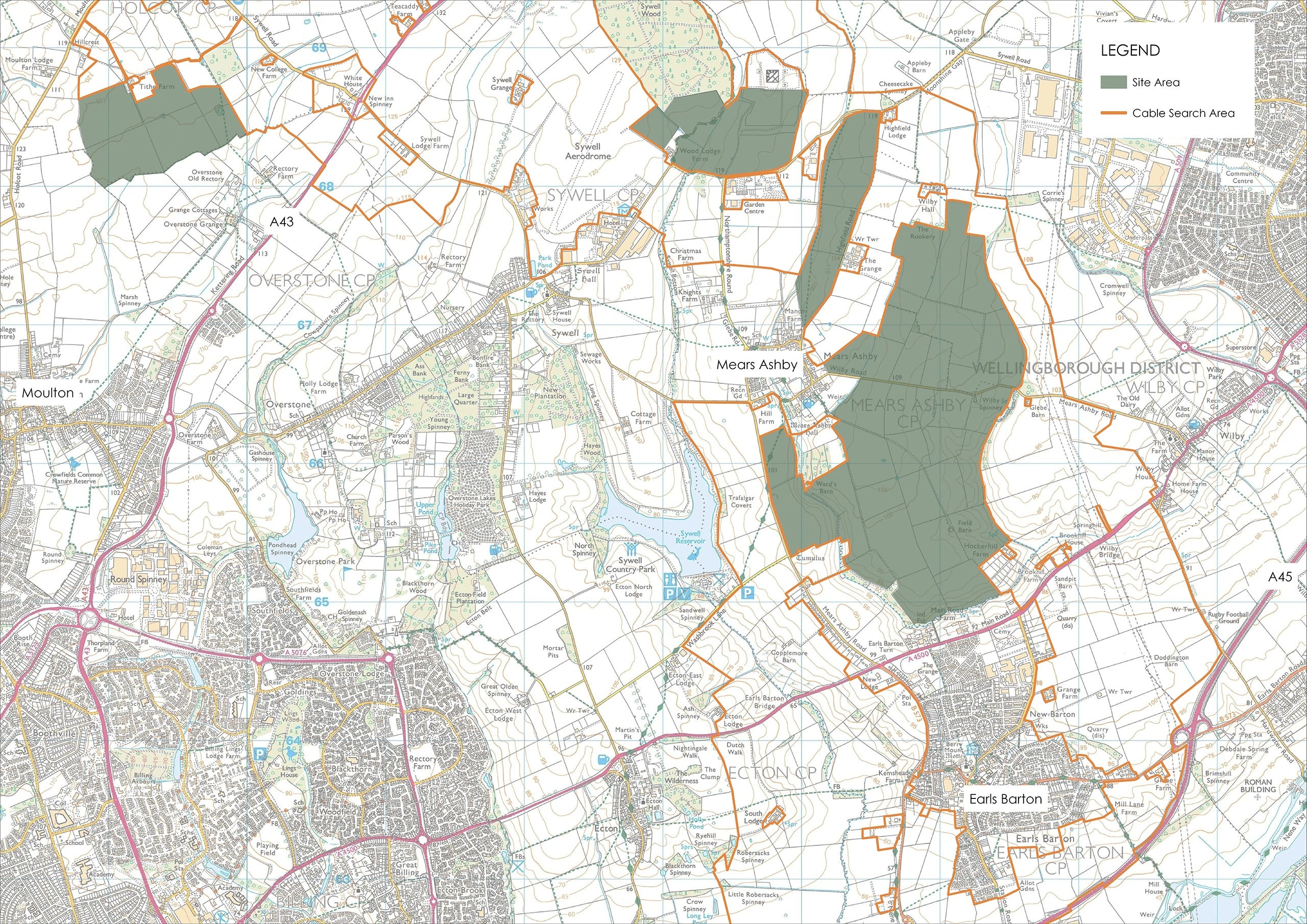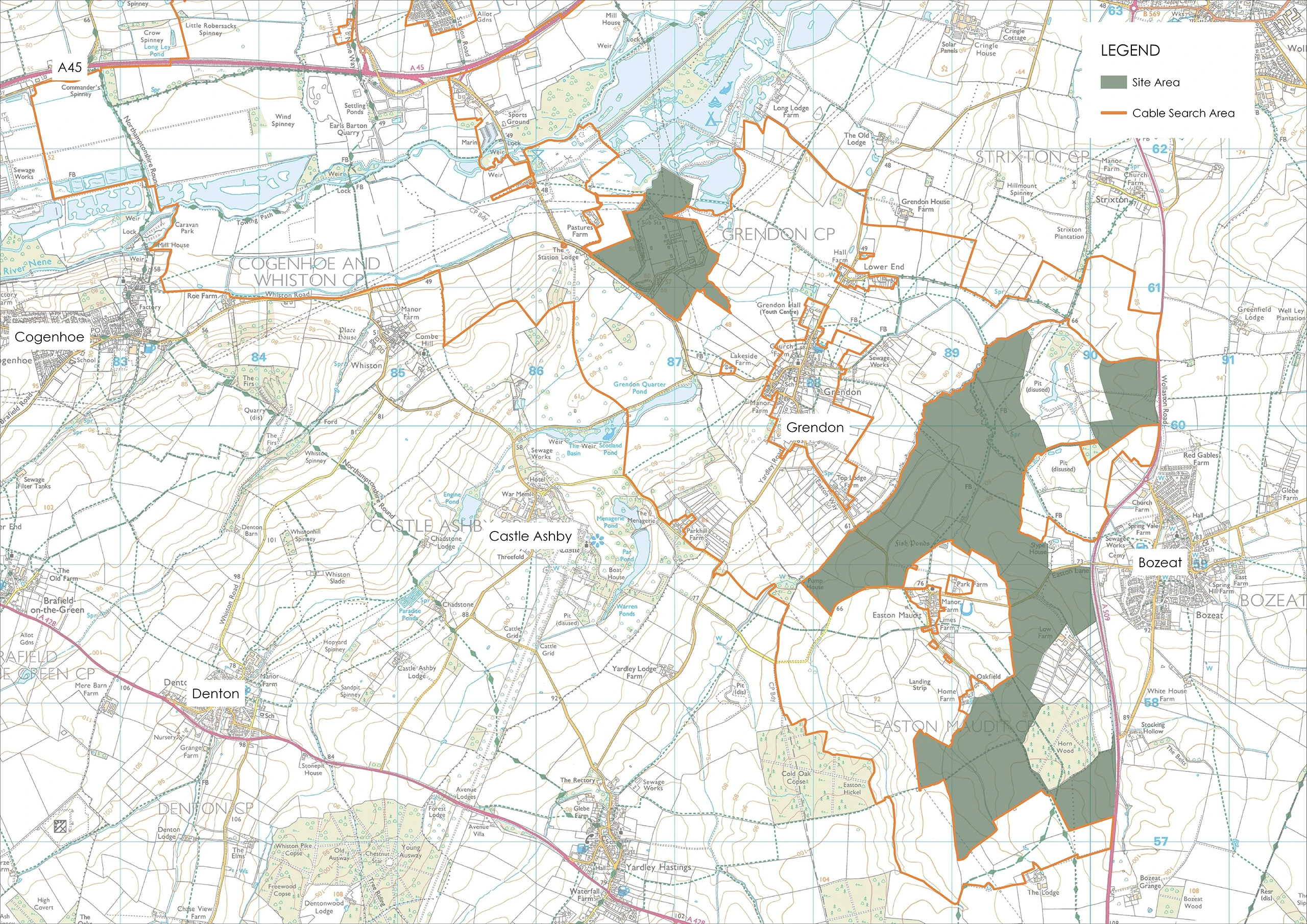
Island Green Power is in the early stages of developing a new solar farm located on land south and west of Wellingborough and north of Northampton in Northamptonshire.

We are currently undertaking early land surveys and assessments to determine the proposed site layout and cable routes.

In March 2024 we held a series of collaborative workshops with local councillors and community organisation to gather local knowledge to help us better understand the local context, key constraints and what is important to the local community. This engagement will help us to refine the early design proposals for Green Hill Solar Farm.
We will present a more detailed design at our statutory consultation, which is currently scheduled for autumn 2024.
About Island Green Power
Island Green Power is a leading developer of renewable energy projects, with a focus on utility-scale solar farms and battery energy storage. Our mission is to help the UK increase our solar energy usage, making more renewable energy possible whilst drastically reducing our carbon emissions.
The need for solar
The way we generate and consume energy is already changing. The move towards renewables and the transition away from fossil fuels is an environmental and economic necessity.
To hit our national net zero targets, boosting our solar generation is essential, as set out in the government’s latest energy strategy, Powering Up Britian (April 2023). We need to get large amounts of renewable energy in the system to help ensure energy security and combat climate change – as well as helping reduce people’s energy bills.
Green Hill Solar Farm would provide a maximum power output of 500 MW, providing a substantial source of renewable electricity for the region and country.
Watch our short video with Martin Clunes as he travels around the British countryside to hear from farmers and landowners about the many benefits of solar energy in the UK.
Our Proposals
A Nationally Significant Infrastructure Project (NSIP) with a maximum power output to the grid of 500 MW (Megawatts), equivalent to generating power for 115,000 homes.
Storage of up to 500MW of renewable energy, available for deployment to the grid when needed.
Making a vital contribution to local and national net zero targets.
Increase planting and enhance biodiversity within the solar farm.
Providing new employment and supply chain opportunities.
We will be consulting with local communities in 2024 to help inform our final project design before we submit our application to the Planning Inspectorate.
Timeline
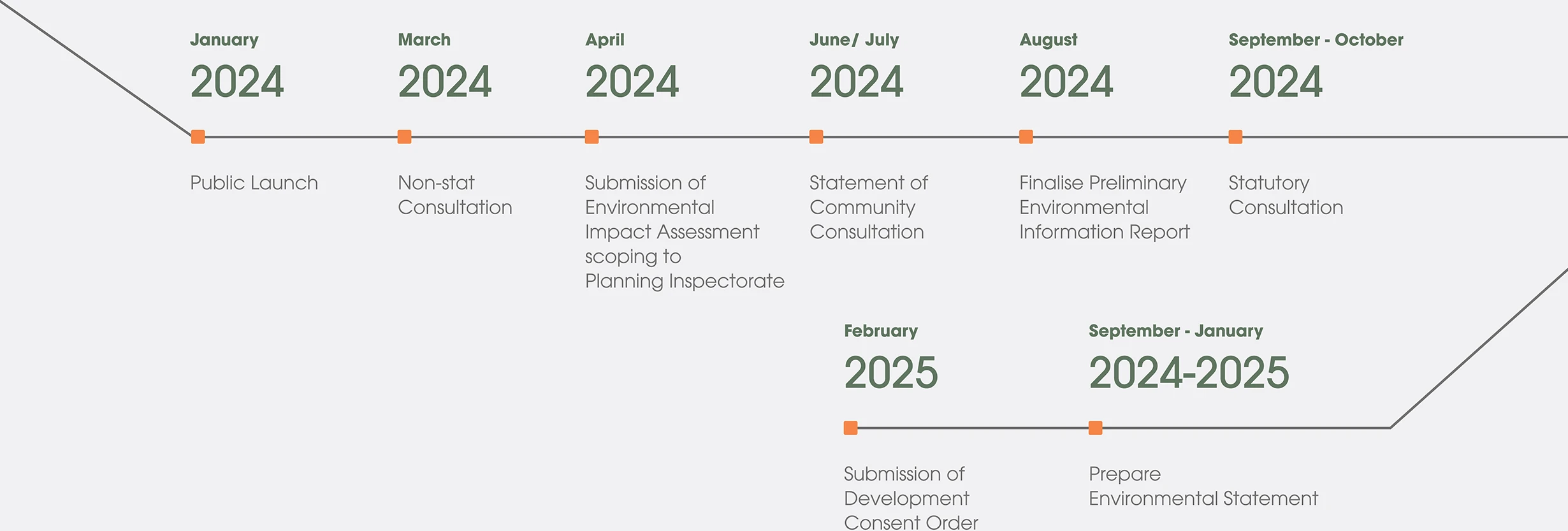
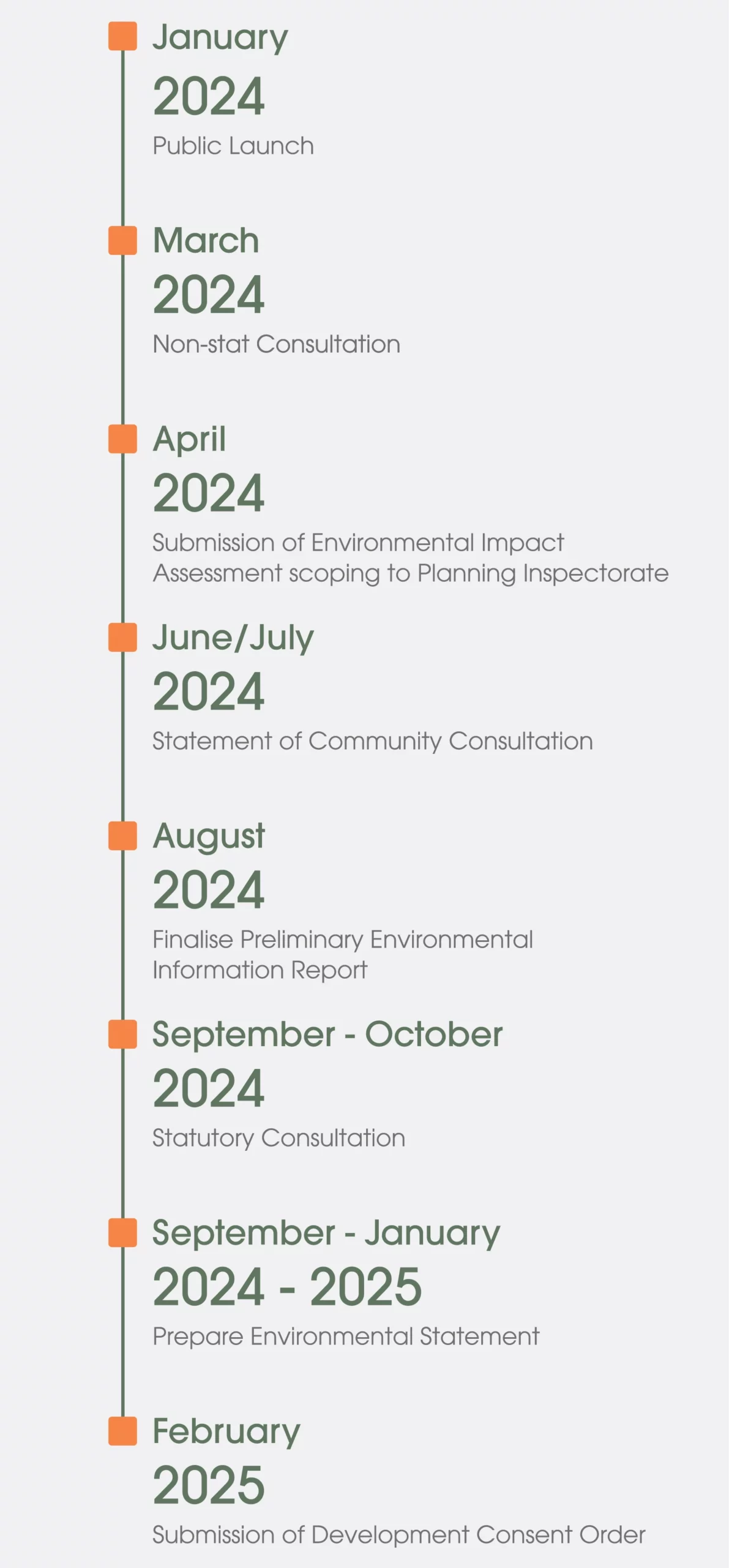
The Solar Farm will be arranged within the existing field boundaries. The planting of trees and hedgerows will strengthen natural boundaries and provide habitats for local wildlife. Survey work is being undertaken to identify areas within the Solar Farm that will be used for solar development and areas that will be used for environmental enhancement. The Solar Farm design will also be informed through consultation with the local community.
A wide area is being considered for the cable routes that will connect the Sites to the electricity grid. Alternate routes around Earls Barton and Grendon are being considered and the most suitable route will be selected. Surveys will be undertaken to reduce the search area to a narrower cable route corridor. The cable route will avoid residential gardens.
We understand the importance of public access to the countryside and will seek to maintain and enhance public footpaths and bridleways within Green Hill Solar Farm.
Ecological surveys are being carried out to help us better understand the site, ensure that ecologically valuable areas are identified and safeguarded, and identify opportunities to create new or improved habitats for wildlife. Solar farms have been proven to enhance biodiversity, including through the delivery of Biodiversity Net Gain (BNG). The biodiversity value of the site will increase through the creation of new habitats, such as species-rich hedgerows, tree planting and the use of species-rich grassland mixes, alongside the enhancement of existing habitats.
This includes the strengthening of existing wildlife corridors and providing additional shelter and roosting opportunities (e.g. bat and bird nesting boxes, hibernacula, and woodpiles). By managing the site sensitively during the operational phase, as well as generating renewable energy for the climate, the solar farm can also help to benefit a wide range of wildlife locally, too.
Solar farms do not have a detrimental impact on flood risk as only a very small proportion on the solar farm is in direct contact with the ground. Where there are existing areas of potential flood risk the layout of the panels can be designed so that there is a neutral effect on flood risk. Climate Change increases the risk of flooding and is one of the many reasons we need to reduce carbon emissions by switching from fossil fuels to renewables like solar.
Consultation
The project is a Nationally Significant Infrastructure Project (NSIP), meaning that it must go through the Development Consent Order (DCO) planning process via central government. As part of this, we will be conducting the consultation to support our DCO application over two stages.
Stage 1 is the non-statutory consultation and was held over January – March 2024. This consisted of engagement with community stakeholders and collaborative workshops with local councillors and community organisations to refine the early design proposals for Green Hill Solar Farm. Read more about our approach to the non-statutory consultation here: Consultation by Collaboration
Stage 2 will be the statutory consultation under the Planning Act 2008 on the proposals of our application and is currently scheduled for Autumn this year.
The statutory consultation will include a number of public consultation events that will be held at local venues to the sites. Comprehensive consultation materials will be made available to provide members of the public with an opportunity to have their say.
The comments received during the consultation will help inform our detailed project design before we submit our application to the Planning Inspectorate.
To find out more about the DCO process, please see the Planning Inspectorate website
Consultation by collaboration
We are committed to working with local communities as we develop our proposals for Green Hill Solar Farm.
As part of the non-statutory consultation and our commitment to conduct transparent and effective consultation with local communities, in March 2024 we invited local councillors and community organisations to co:design workshops to participate in the early design process of our plans.
Collaborating with the local community while we develop our plans will help us better understand local challenges and aspirations.
A copy of the presentation shown at the co:design workshops can be found in the Documents section of this website.
We are now in the process of collating the feedback received, which will help refine the design proposals for Green Hill Solar Farm.
A summary of the engagement during the co:design workshops, including how we used comments to help refine the Scheme, will be set out in a post-collaboration workshop report, which we will make available on this website in due course.

Have your say
We are currently at early stages of developing our plans and will launch our statutory consultation later in the year.
Your feedback will be important for us to develop our plans and deliver real benefits to the local community.
Please contact us via email or our community relations freephone to be kept up to date on the progress of our plans and join our mailing list. You can find more details on our Contact Us page
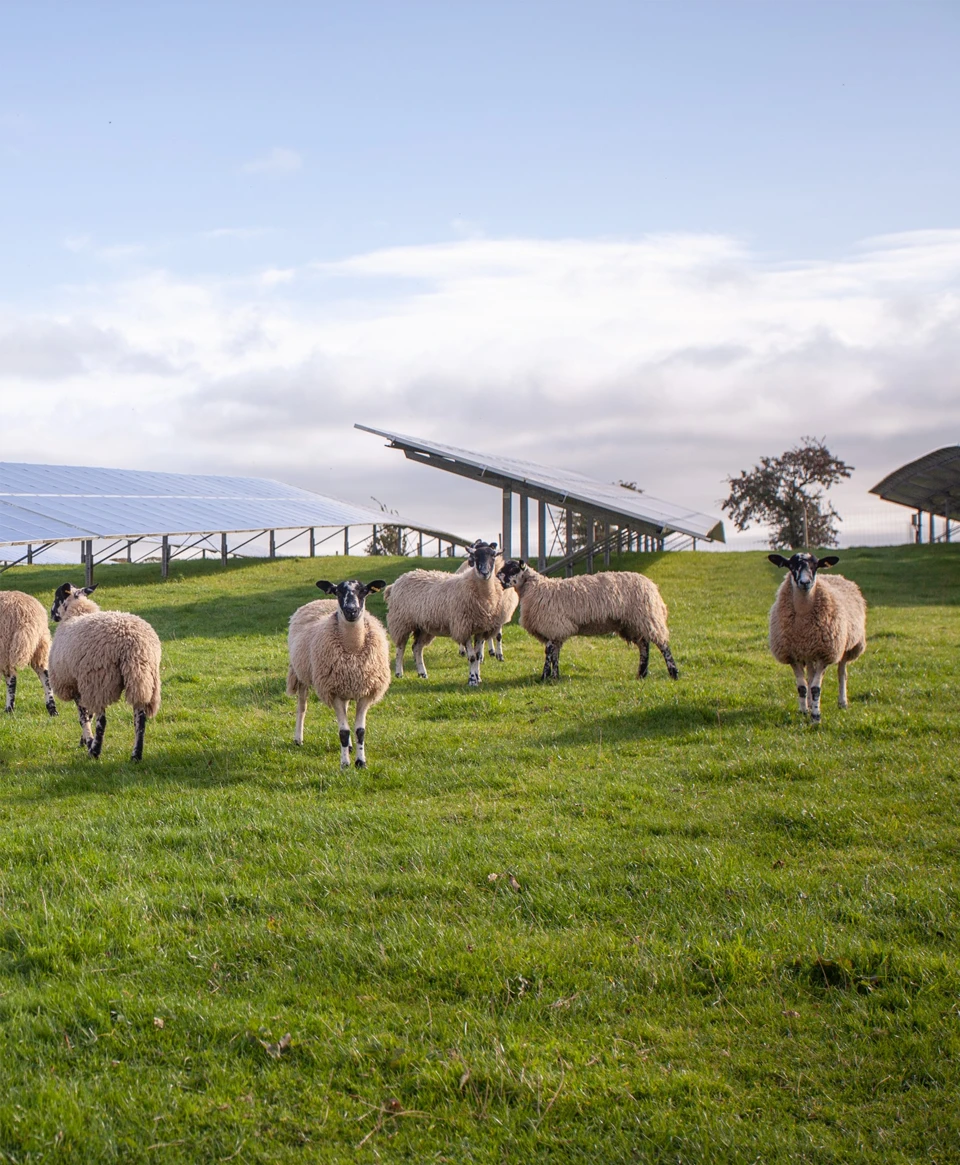
Contact us
You can contact us at
Community Relations Freephone at
0800 012 9882
